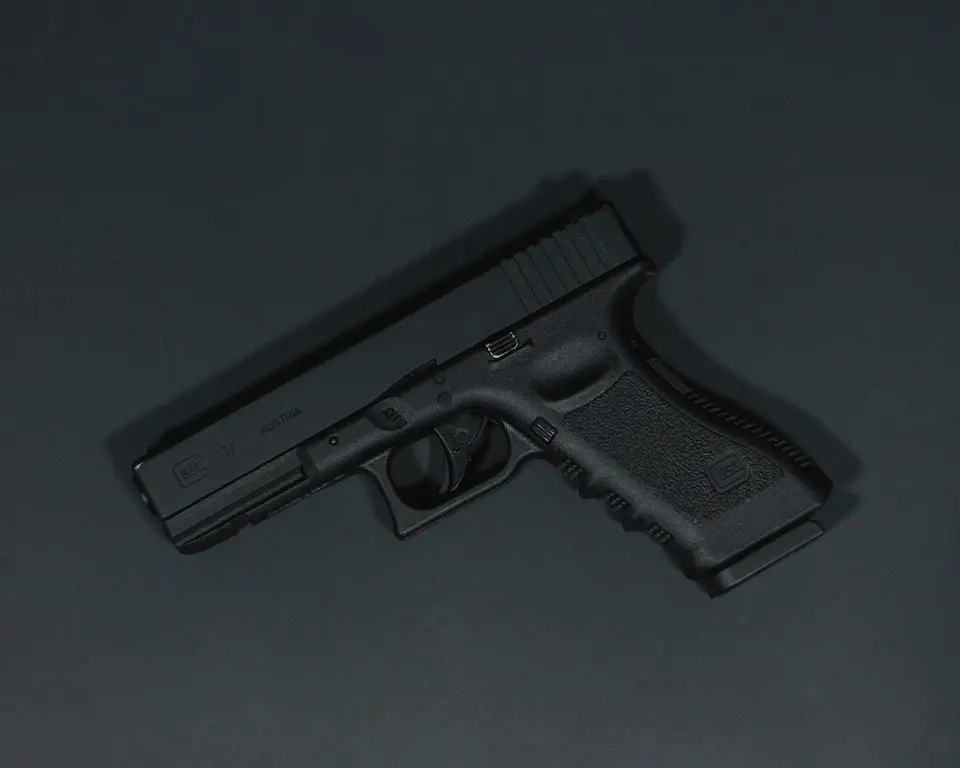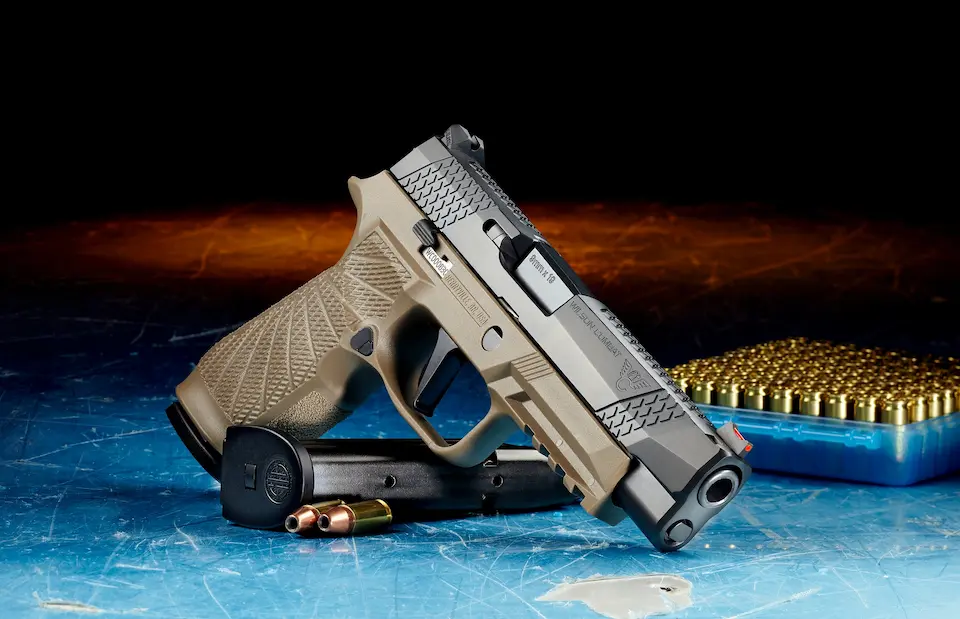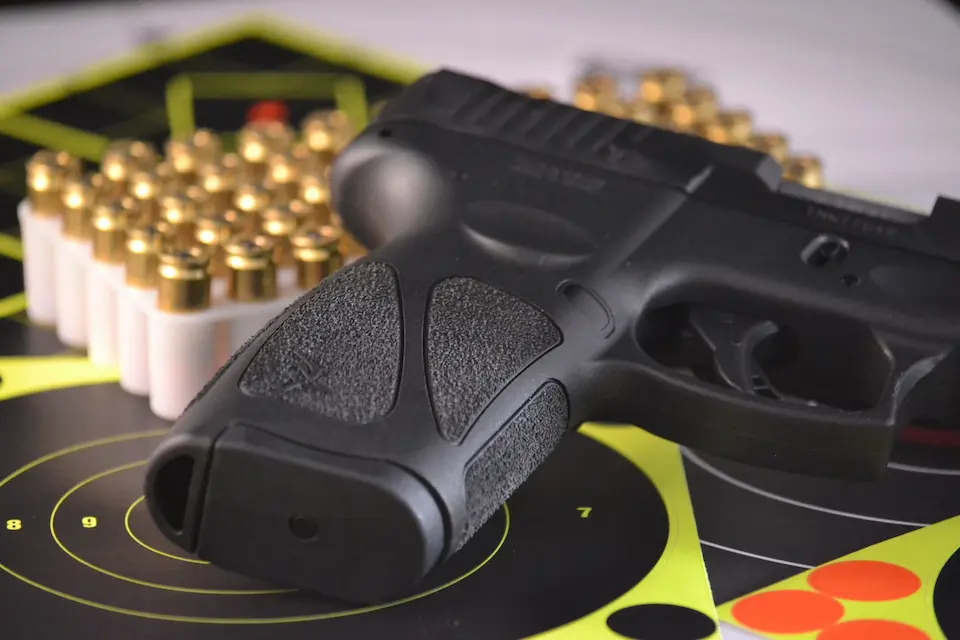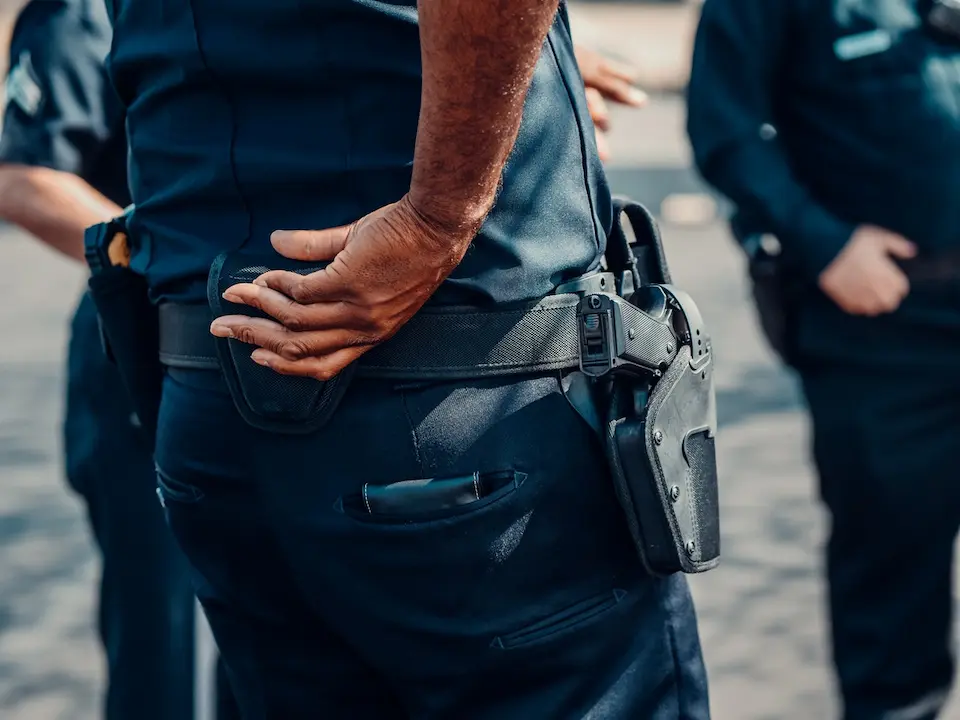While everyone in the United States has a right to bear arms, doing so in your car can get tricky when you’re talking about a concealed firearm versus having a handgun openly displayed. Being aware of the North Carolina gun laws in your car can prevent you from getting in trouble with a law enforcement official and possibly facing prison time.
David Coolidge is a seasoned attorney at Coolidge Law Firm, specializing in North Carolina gun laws, criminal defense, and family law. With a background from Wake Forest University School of Law, he brings a wealth of legal knowledge and a commitment to justice. As an adjunct professor, David also shapes future legal minds in Trial Advocacy. His practical advice and insights stem from years of experience, making his contributions invaluable to those navigating the complexities of the law in North Carolina. If you’re charged with illegally carrying a gun in NC, trust the criminal defense attorneys at the Coolidge Law Firm.

What Are the Conceal and Carry Gun Laws in North Carolina?
In North Carolina, a person can carry a concealed handgun on their property. But when they move to public property or someone else’s property, carrying a concealed weapon can become a crime without the proper permit.
Since 1995, people who live in North Carolina have been allowed to get a permit to carry a concealed handgun from their local sheriff’s office. The permit is valid for five years unless it is revoked for any reason. As of 2011, North Carolina also recognizes concealed carry permits that are issued in other states.
If you have a permit to carry a concealed weapon, you should carry your permit and a valid form of identification at all times. You should also disclose the fact that you have a valid concealed carry permit if a law enforcement official approaches you. When approached you should also inform the officer that you have a concealed weapon.

Can I keep a firearm in my car in NC?
You can keep a firearm in your car only if it is both concealed and not easily accessible by someone inside. If the handgun is locked in the trunk and is not easily accessible, you’re not breaking any laws.
According to the North Carolina Department of Public Safety, concealment in a vehicle means that the gun cannot be readily seen by someone approaching the vehicle and it is not readily accessible. If the gun cannot be seen by someone approaching the vehicle and can easily be accessed by people inside, it is illegal unless the person possessing the gun has a concealed carry permit. It does not matter if it is a loaded or unloaded firearm.
Also, if the weapon is locked in the glove compartment the key is not in the lock, and the glove compartment can’t be opened by simply tugging on it, it is considered not readily accessible.
In North Carolina, it is prohibited to have a concealed handgun in a vehicle unless the person has a concealed carry permit. If you don’t have a permit to conceal carry and want to keep it in your vehicle, it must be stored in a compartment or box inside the vehicle that is not easily accessible and out of sight. Additionally, any ammunition for the gun also needs to be stored separately from the weapon if it is not in a locked container. Lastly, it is illegal to carry a rifle or shotgun with you in your vehicle unless you have a valid hunting license and/or are transporting

Where Can You Conceal A Gun Within An Automobile?
Where and how you can carry a firearm in your car depends on whether you have a valid concealed carry permit.
Where To Put A Gun In A Car If You’re Following Open Carry Laws
Keeping a weapon in a locked glove box or trunk is a legal way to keep a firearm in your car if you don’t have a concealed carry permit. It not must be displayed openly or accessible to your passengers.
Where To Put A Gun In A Car If You Have A Concealed Carry Permit
If you do have a license to conceal carry, you can keep firearms under the seat or in an unlocked glove box. But, if someone else drives your vehicle, they may not be permitted to do so. If you keep a firearm under your seat and someone borrows your car and gets pulled over, they are breaking the law unless they also have a concealed carry permit.

Can You Carry a Gun Without a Permit in North Carolina?
It is legal to open-carry firearms without a permit in North Carolina. But you can’t do it everywhere. The following areas are off-limits:
- School property
- State or federal buildings
- State Capitol grounds
- Offices of the state or federal government
North Carolina law requires you to tell an officer if you have a firearm when approaching on official business. You must carry your permit at all times when you have a concealed handgun.
If you’re not sure where your travels will take you, it’s always best to have your permit with you so that there aren’t any issues.
Legal vs. Illegal Firearm Carry in a Vehicle: Understanding North Carolina’s Gun Laws
Navigating the gun laws in North Carolina (NC) can be a complex process for residents and visitors alike. Understanding the nuances between legal and illegal firearm carry in a vehicle is crucial to ensure compliance with state regulations. Here, we delve into the specifics of carrying firearms within vehicles in NC, with a focus on handguns, rifles, and concealed weapons, highlighting the importance of carry permits and the state’s recognition of permits from all states.
Legal Firearm Carry in a Vehicle
Concealed Carry with a Permit: In North Carolina, individuals with a concealed carry permit are legally allowed to carry handguns in their vehicles. This permit is crucial for those wishing to transport a concealed weapon, as NC recognizes concealed carry permits issued by any state. It’s important to note that while concealed carry is widely accepted, the firearm must not be visible from outside the vehicle, ensuring it adheres to the state’s concealed firearm laws.
Open Carry in a Vehicle: North Carolina also permits the open carry of firearms without the need for a specific permit. This means that rifles and handguns can be carried openly in a vehicle, provided they are visible and not misleadingly concealed. For example, a rifle may be mounted in a rack inside the vehicle, clearly visible through the windows.
Illegal Firearm Carry in a Vehicle
Concealed Carry without a Permit: Carrying a concealed handgun in a vehicle without the appropriate permit is illegal in NC. This includes hiding a weapon under the seat, in a glove compartment, or anywhere else within the vehicle where it is not openly visible. North Carolina does not have any state law requiring the registration of firearms, but carrying a concealed weapon without a permit can lead to significant legal consequences.
Improper Open Carry: While open carry is generally permitted, there are restrictions on how and where a firearm can be openly carried in a vehicle. A firearm that is placed in such a way that it appears to be concealed (for example, partially hidden under a seat but still partially visible) can lead to confusion and potential legal issues, as it may not meet the clear standards of open carry.
Key Points to Remember
- Carry Permits: North Carolina automatically recognizes concealed carry permits issued in any other state, making it easier for visitors to comply with NC’s gun laws. Permit holders need to have their permits with them at all times when carrying a concealed weapon.
- Firearm Registration: North Carolina does not require firearm registration, providing a degree of freedom for gun owners. However, understanding the difference between open and concealed carry, and the legal implications of each, remains critical.
- Age Restrictions: Individuals must be at least 21 years old to obtain a concealed carry permit in NC. This age requirement ensures that only adults with the proper understanding and respect for gun safety and laws are granted the privilege of concealed carry.
- Background Checks: Despite the lack of a state-mandated registration process, purchasing a handgun still requires a background check. This ensures that firearms are only sold to individuals who are legally allowed to own them, promoting safety and responsibility.
Understanding the balance between rights and responsibilities is crucial for all firearm owners in North Carolina. By adhering to the state’s gun laws, residents and visitors can ensure they are carrying firearms legally and safely, both for their protection and the safety of others around them.
What Happens If You’ve Been Caught Illegally Carrying a Gun?
Under North Carolina General Statute § 14-269, it is illegal for anyone to willfully and intentionally carry a concealed deadly weapon, except when the person is on their property. The statute does not apply to people who have concealed handgun permits.
This crime is classified as a Class 2 misdemeanor for the first offense and a Class H felony for a second or subsequent offense. As a Class 2 misdemeanor, the crime is punishable by 30 days to 6 months in prison. If it is a second offense and the weapon is a firearm, you could face up to one year in jail.
Frequently Asked Questions about Gun Laws in North Carolina
1. Does North Carolina recognize concealed carry permits from other states? Yes, North Carolina automatically recognizes concealed carry permits issued in any other state. This makes it convenient for residents from other states to legally carry concealed weapons in NC according to the state’s gun laws.
2. Is it required to register firearms in North Carolina? No, North Carolina does not have any state law requiring the registration of firearms. Residents and visitors in NC can own firearms without the need to register them with the state. However, certain federal background checks and requirements must still be met for the purchase and ownership of firearms.
3. Can I openly carry firearms in North Carolina? Yes, open carry of firearms is legally permitted in North Carolina for anyone who is of legal age (18 years and older) and not prohibited by law from owning a firearm. There are no caliber or magazine capacity restrictions for openly carried weapons, but it’s important to be aware of and comply with specific local ordinances that may apply.
4. What are the requirements for obtaining a concealed carry permit in NC? To obtain a concealed carry permit in North Carolina, applicants must be at least 21 years old, complete a minimum eight-hour training course on gun safety and laws, file the application in their county of residence, and meet other state law requirements, including background checks.
5. Are background checks required for all firearm purchases in North Carolina? Background checks are required for purchasing handguns in North Carolina, either through an NC Pistol Purchase Permit or a North Carolina Concealed Carry Handgun permit. For long guns (rifles or shotguns), a federal background check is conducted at the point of sale.
6. Where is concealed carry not permitted in North Carolina? Concealed carry is prohibited in certain areas within North Carolina, including but not limited to law enforcement or correctional facilities, areas where protests or demonstrations are taking place, private property where concealed handguns are specifically prohibited, and anywhere firearms are prohibited under federal law.
7. How does North Carolina ensure the safety of its residents concerning gun ownership? North Carolina emphasizes gun safety through required training for concealed carry permits, which includes both practical handgun safety and legal instruction regarding the use of deadly force. The state also enforces laws that prohibit possession by certain individuals, such as those with violent criminal histories, ensuring a responsible approach to gun ownership and carry practices.
8. Can I carry a concealed handgun in restaurants or bars in North Carolina? You can carry a concealed handgun in restaurants in North Carolina, provided the establishment does not post a “No Weapons” sign and does not sell alcohol. Carrying a concealed weapon in bars or restaurants that sell alcohol is not permitted, regardless of having a concealed carry permit.
How Our Criminal Defense Attorneys Can Help You
If you are facing criminal charges regarding illegally carrying a weapon, the Coolidge Law Firm in Raleigh, North Carolina can help. Ask to speak to an attorney who can answer specific questions about your case. Obtaining formal legal advice can help you better understand the charges against you and any court action you may be facing. Call us today at (919) 239-8448 or reach out to us online so we can answer questions and give you the legal help you deserve.


